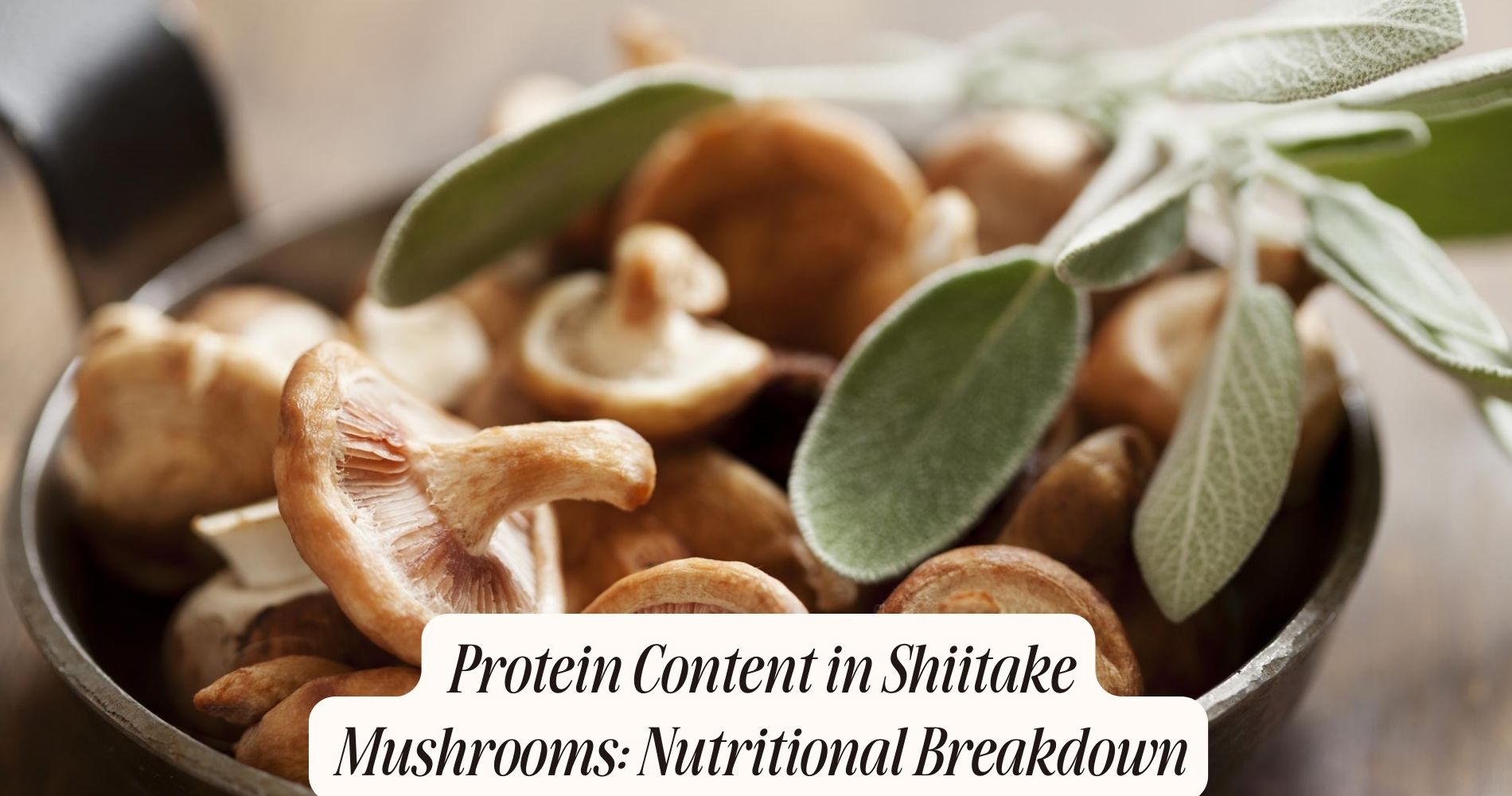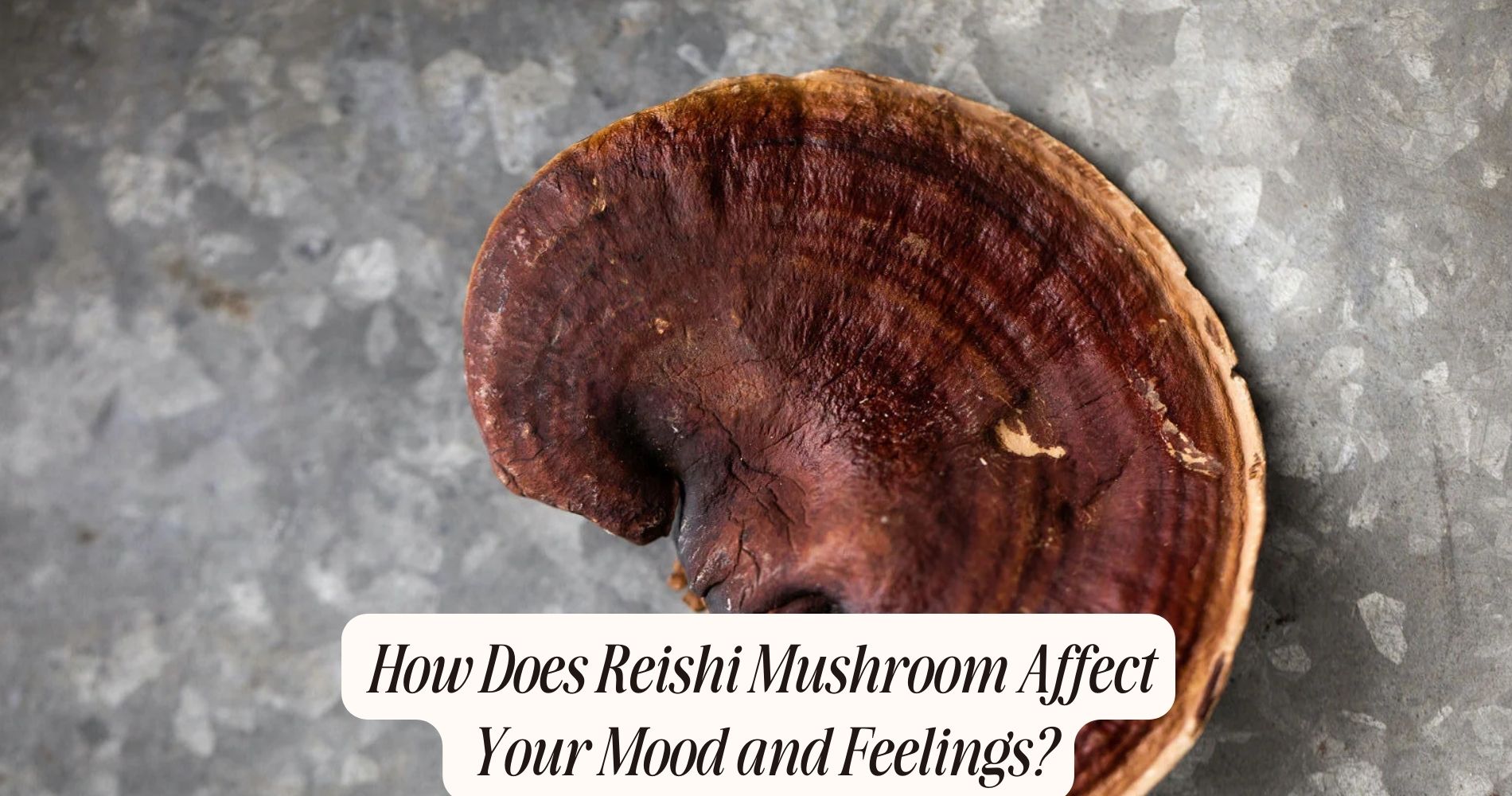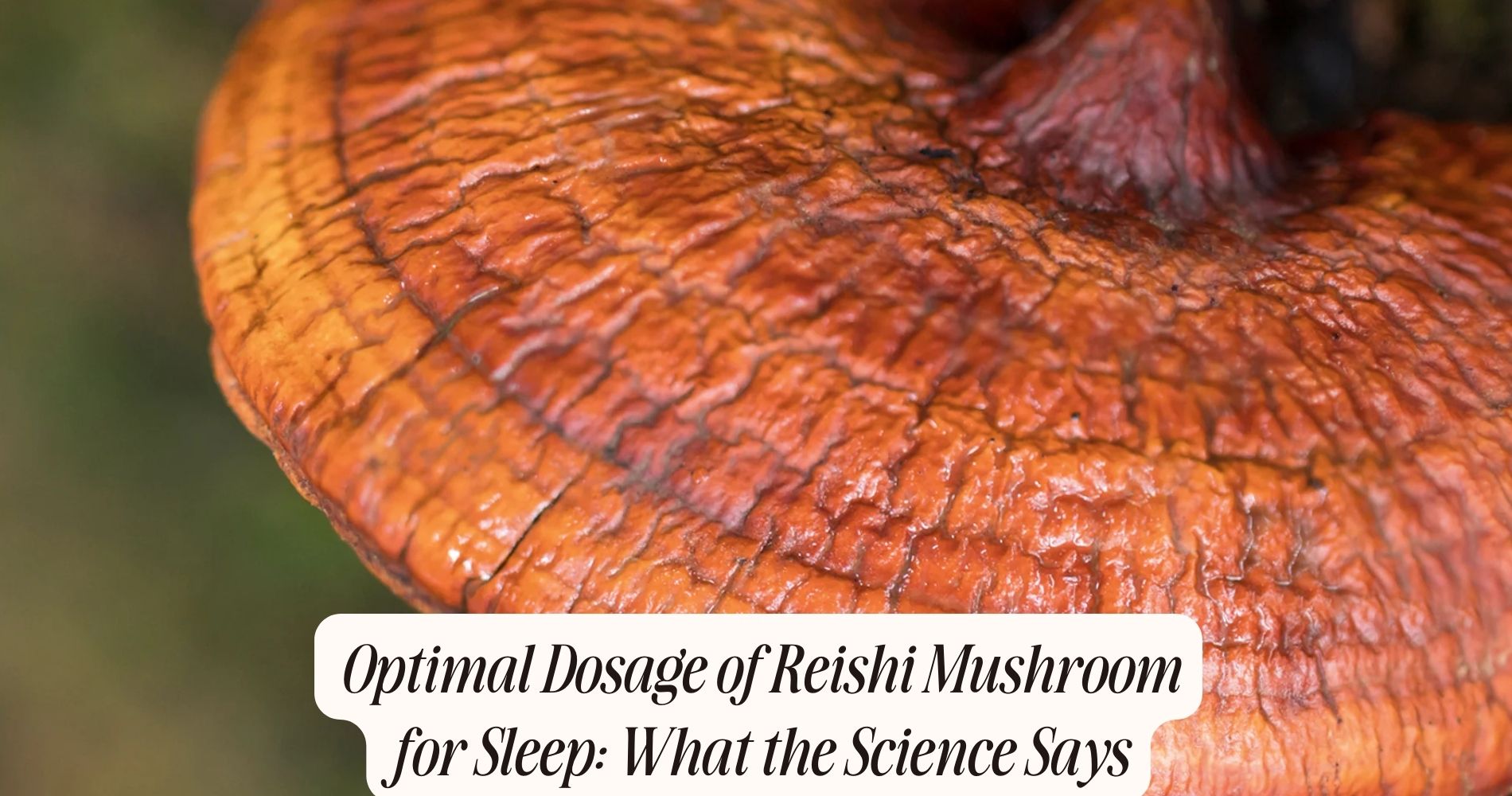
Protein Content in Shiitake Mushrooms: Nutritional Breakdown
Nutritional Profile of Shiitake Mushrooms
Shiitake mushrooms are packed with essential nutrients, including vitamins, minerals, and a substantial amount of protein. When you include shiitake mushrooms in your diet, you're not just enhancing flavor but also boosting your nutrient intake. These mushrooms are rich in B vitamins like B2 (riboflavin), B3 (niacin), and B5 (pantothenic acid), which help convert food into energy and support brain health. They also contain vitamin D, which is important for bone health and immune function, especially when exposed to sunlight during growth.
In addition to their impressive vitamin content, shiitake mushrooms are an excellent source of dietary fiber. Fiber intake is essential for maintaining a healthy digestive system, aiding in weight management, and reducing the risk of chronic diseases like diabetes and heart disease. Shiitakes provide both soluble and insoluble fibers, which help regulate blood sugar levels and promote regular bowel movements.

Moreover, these mushrooms contain essential minerals such as selenium, copper, and zinc. Selenium acts as an antioxidant, while copper and zinc play important roles in immune defense and enzyme function.
Incorporating shiitake mushrooms into your meals can greatly contribute to a well-rounded, nutrient-dense diet.
Protein Content per Serving
When you look at the protein content of shiitake mushrooms, you'll find that a typical serving size of 100 grams contains about 2 grams of protein.
This may seem modest compared to animal protein sources, but it's quite competitive among plant-based options.
Comparing this to other mushrooms, shiitakes generally offer a similar or slightly higher protein content per serving.
Grams of Protein
In a standard 100-gram serving, you'll find that shiitake mushrooms contain approximately 2.2 grams of protein, making them a modest but valuable protein source. While this amount may seem small compared to animal-based proteins, shiitake mushrooms can still contribute importantly to your daily protein intake, especially when part of a balanced diet. Protein is vital for various bodily functions, particularly protein synthesis and muscle repair. Including shiitake mushrooms in your meals can aid in these processes, supporting overall health and well-being.
Shiitake mushrooms are also low in fat and calories, making them an excellent choice for those looking to maintain or lose weight without sacrificing essential nutrients. The amino acids found in shiitake mushrooms are beneficial for your body, helping to build and repair tissues, produce enzymes and hormones, and bolster your immune system. Additionally, these mushrooms contain antioxidants, vitamins, and minerals that further enhance their nutritional profile.
Incorporating shiitake mushrooms into your diet can be both delicious and nutritious. You can add them to soups, stir-fries, salads, or even grill them as a savory side dish. This versatility makes it easy to enjoy the health benefits they offer without drastically altering your meal plans.
Serving Size Comparison
Comparing the protein content of shiitake mushrooms to other common foods can provide a clearer picture of their nutritional value. For instance, a 100-gram serving size of raw shiitake mushrooms contains approximately 2.2 grams of protein. By contrast, the same serving size of chicken breast offers around 31 grams, and a similar portion of lentils provides about 9 grams.
When you consider serving sizes in your diet, it's important to recognize that shiitake mushrooms can be a valuable protein source, especially for those following plant-based diets. A portion comparison shows that while shiitake mushrooms may not match meat or legumes in protein content, they still contribute meaningfully to your daily intake.
Another interesting point is how shiitake mushrooms' low caloric value complements their protein content. For example, 100 grams of shiitake mushrooms contain only about 34 calories, compared to 165 calories for the same amount of chicken breast. This makes shiitake mushrooms an excellent choice for those looking to manage calorie intake while still benefiting from protein.
Essential Amino Acids
Shiitake mushrooms boast a rich profile of essential amino acids, providing a complete protein source that supports various bodily functions. Essential amino acids are those that your body can't produce on its own, so you must obtain them through your diet. Shiitake mushrooms contain all nine essential amino acids, making them a valuable addition to your meals.
These essential amino acids contribute to protein synthesis, a critical process where cells build proteins needed for muscle repair, enzyme function, and immune system support. For instance, leucine plays an important role in muscle protein synthesis, while lysine is necessary for collagen formation and immune function. Threonine is essential for maintaining proper protein balance, and tryptophan is a precursor for serotonin, a neurotransmitter that affects mood and sleep.

Incorporating shiitake mushrooms into your diet ensures you get a balanced intake of these important amino acids. Whether you're a vegetarian, vegan, or simply looking to diversify your protein sources, shiitake mushrooms offer a nutrient-dense option.
Non-Essential Amino Acids
You'll find that shiitake mushrooms are rich in non-essential amino acids like glutamic acid and serine.
Glutamic acid plays a key role in brain function and can enhance the flavor of foods.
Serine is essential for metabolism, contributing to the synthesis of proteins and other important molecules.
Glutamic Acid Benefits
Although often overlooked, glutamic acid in shiitake mushrooms plays an essential role in brain function and overall health. This non-essential amino acid is a precursor to glutamate, a critical neurotransmitter in your brain. Glutamate is necessary for cognitive functions like learning and memory. By consuming shiitake mushrooms, you're not just adding a tasty ingredient to your meals but also supporting your brain's neurotransmitter function.
Glutamic acid also greatly enhances flavor. It's responsible for the umami taste, often described as savory or meaty, that makes shiitake mushrooms so appealing in various dishes. This natural flavor enhancement can reduce the need for added salts and artificial flavorings, making your meals healthier.
Moreover, glutamic acid helps in the synthesis of proteins and the metabolism of sugars and fats. It aids in detoxifying ammonia by converting it into urea, which is then excreted by your body. This detoxification process is essential for maintaining your body's overall health.
Serine in Metabolism
Serine, a non-essential amino acid found in shiitake mushrooms, plays a pivotal role in metabolism by participating in the synthesis of proteins, nucleotides, and neurotransmitters. You'll find that serine is synthesized from 3-phosphoglycerate, an intermediate in glycolysis, making it readily available within your body. This process, known as serine synthesis, involves several enzymatic steps, ensuring a steady supply of this important amino acid.
The serine pathways extend beyond simple protein synthesis. Serine is a precursor to other amino acids like glycine and cysteine. It also contributes to the formation of phospholipids, which are fundamental components of cell membranes.
In the central nervous system, serine is integral to the synthesis of neurotransmitters like serotonin and dopamine, directly influencing mood and cognitive functions.
Moreover, serine assists in the production of purines and pyrimidines, the building blocks of DNA and RNA. This makes serine essential for cell growth and repair.
Protein Bioavailability
Understanding protein bioavailability in shiitake mushrooms is essential because it determines how effectively your body can absorb and utilize the protein they contain. Protein absorption starts in your stomach and continues in your small intestine, where digestive enzymes break down proteins into amino acids.
Shiitake mushrooms contain readily digestible proteins, which means your digestive efficiency is relatively high when consuming them. Studies show that the protein in shiitake mushrooms is rich in essential amino acids, making it a valuable addition to your diet. The presence of digestive enzymes like proteases in shiitake mushrooms further aids in protein absorption.

Additionally, the fiber content in shiitake mushrooms, while beneficial for overall digestive health, doesn't impede protein bioavailability significantly. This means you can efficiently utilize the protein content for muscle repair, enzyme production, and other bodily functions.
Furthermore, shiitake mushrooms contain polysaccharides like lentinan, which have been shown to improve gut health. A healthy gut lining enhances overall digestive efficiency, allowing your body to absorb more nutrients, including proteins.
Comparing Plant-Based Proteins
When evaluating plant-based proteins, it's important to examine how the protein profile of shiitake mushrooms compares to other plant sources such as lentils, quinoa, and chickpeas.
Shiitake mushrooms provide roughly 2.2 grams of protein per 100 grams. While this is lower than lentils and chickpeas, which offer around 9 grams and 19 grams respectively for the same serving size, shiitakes bring unique amino acids to the table.
Lentils, a staple legume protein, are rich in essential amino acids like lysine but lack methionine. Quinoa, on the other hand, is a complete protein, meaning it contains all nine essential amino acids, with about 4.5 grams of protein per 100 grams. Chickpeas, another legume protein, are excellent for their high protein and fiber content but miss out on some amino acids present in shiitake mushrooms.
Shiitake mushrooms also offer a variety of micronutrients and bioactive compounds that you won't find in many other plant-based protein sources. While they may not be the most protein-dense option, incorporating shiitake mushrooms into your diet can diversify your nutrient intake and complement other protein sources. This makes them a valuable addition to a balanced, plant-based diet.
Health Benefits of Shiitake Mushrooms
Shiitake mushrooms offer a wide array of health benefits, ranging from boosting the immune system to providing essential vitamins and minerals. These fungi are rich in polysaccharides like lentinan, which have been shown to enhance immune support. By stimulating the production of white blood cells, lentinan helps your body fend off infections more effectively.
Moreover, shiitake mushrooms contain compounds like eritadenine and beta-glucans, which are known to lower cholesterol levels and enhance cardiovascular health. Studies suggest that eritadenine can inhibit enzyme activity involved in cholesterol production, thereby promoting heart health.
Another significant benefit of shiitake mushrooms is their potential role in cancer prevention. Research indicates that the polysaccharides in shiitake can inhibit tumor growth and even induce apoptosis (programmed cell death) in certain cancer cells. These mushrooms are also rich in antioxidants like selenium and vitamin D, which help neutralize free radicals, further reducing cancer risk.

In addition to these benefits, shiitake mushrooms are a good source of B vitamins, particularly B2, B3, and B5, which are important for energy production and cognitive function. Incorporating shiitake mushrooms into your diet can offer a comprehensive approach to improving your overall health.
Cooking Methods and Protein Retention
To retain the maximum protein content while cooking shiitake mushrooms, it's important to choose methods that minimize nutrient loss, such as steaming or sautéing. Steaming shiitake mushrooms helps preserve their protein because it involves minimal water exposure and low cooking temperatures, which reduce the risk of nutrient leaching.
When sautéing, it's vital to use techniques that optimize nutrient retention. Use a small amount of healthy oil, like olive or avocado oil, and cook the mushrooms quickly over medium-high heat. This method not only enhances their flavor but also keeps the protein content intact. Avoid overcooking, as prolonged exposure to heat can degrade proteins and other nutrients.
On the other hand, baking effects can be more detrimental to protein retention. Baking typically requires higher temperatures and longer cooking times, which may lead to protein denaturation. If you choose to bake shiitake mushrooms, consider using lower temperatures and shorter cooking durations.
Incorporating Shiitake Into Your Diet
Incorporating shiitake mushrooms into your diet can provide a delicious and nutrient-dense addition to your meals, thanks to their rich protein content and versatility in various dishes. You can easily add them to stir-fries, soups, or salads. For a quick protein boost, sauté them with garlic and olive oil, then toss them into a quinoa salad.
Recipe suggestions include shiitake mushroom risotto, where their umami flavor enhances the creamy texture, or a hearty shiitake and vegetable stir-fry paired with tofu or chicken. You can even use them as a meat substitute in dishes like shiitake mushroom burgers or tacos.
For dietary tips, consider rehydrating dried shiitake mushrooms for convenience. They retain their nutritional value and can be stored for longer periods. When fresh, store them in a paper bag in the refrigerator to maintain their quality. They're also great for boosting the protein content of vegetarian and vegan meals.
Remember to clean the mushrooms thoroughly. Avoid soaking them in water; instead, use a damp cloth to wipe off any dirt.
Incorporating shiitake mushrooms into your diet is an easy way to enhance both flavor and nutrition in your meals.
Discover Well Gummies for Holistic Health
While exploring the benefits of shiitake mushrooms, particularly their protein content, it's exciting to find other convenient ways to incorporate mushrooms into your diet. Introducing Well Gummies' 10-IN-1 MUSHROOM GUMMIES—a perfect blend of ten functional mushrooms, including shiitake, crafted to support your overall wellness. These vegan gummies are designed to provide calmer energy, sharper focus, and enhanced immune support, all while tasting like fresh wild berries. With Well Gummies, you can enjoy the nutritional benefits of mushrooms in a delicious, easy-to-consume form that's as delightful as your favorite candy, without any jitters or crashes. Experience a balanced body and a clear mind every day with Well Gummies.
Frequently Asked Questions
How Do Shiitake Mushrooms Affect Blood Sugar Levels?
Shiitake mushrooms can help stabilize blood sugar levels. They contain polysaccharides that may reduce glucose levels by enhancing insulin sensitivity and slowing glucose absorption, making them beneficial for managing blood sugar.
Are There Any Common Allergens in Shiitake Mushrooms?
Yes, shiitake mushrooms can cause allergy symptoms like itching or skin rashes. Some people experience immune reactions due to lentinan, a compound in the mushrooms. It's uncommon, but you should monitor any adverse effects.
What Is the Environmental Impact of Shiitake Mushroom Farming?
You're asking about the environmental impact of shiitake mushroom farming. It's generally low due to sustainable farming practices. Shiitake cultivation has a small carbon footprint, as it often uses agricultural waste and requires minimal land and water.
Can Shiitake Mushrooms Be Consumed Raw?
You shouldn't consume shiitake mushrooms raw because they can cause digestive health issues. Cooking methods like sautéing or grilling not only enhance their flavor but also deactivate any harmful compounds, ensuring safe consumption.
How Are Shiitake Mushrooms Cultivated Commercially?
To cultivate shiitake mushrooms commercially, you'll need to use log cultivation or substrate sterilization. Log cultivation involves inoculating hardwood logs with spores, while substrate sterilization uses sterilized sawdust or other materials to grow the mushrooms.
Conclusion
Incorporating shiitake mushrooms into your diet offers a rich source of protein, essential and non-essential amino acids, and numerous health benefits.
While cooking methods can impact protein retention, these mushrooms remain a valuable plant-based protein option.
By understanding their nutritional profile and bioavailability, you can make informed dietary choices.
So, don't hesitate to add shiitake mushrooms to your meals; their nutritional advantages are backed by evidence and can enhance your overall health.




